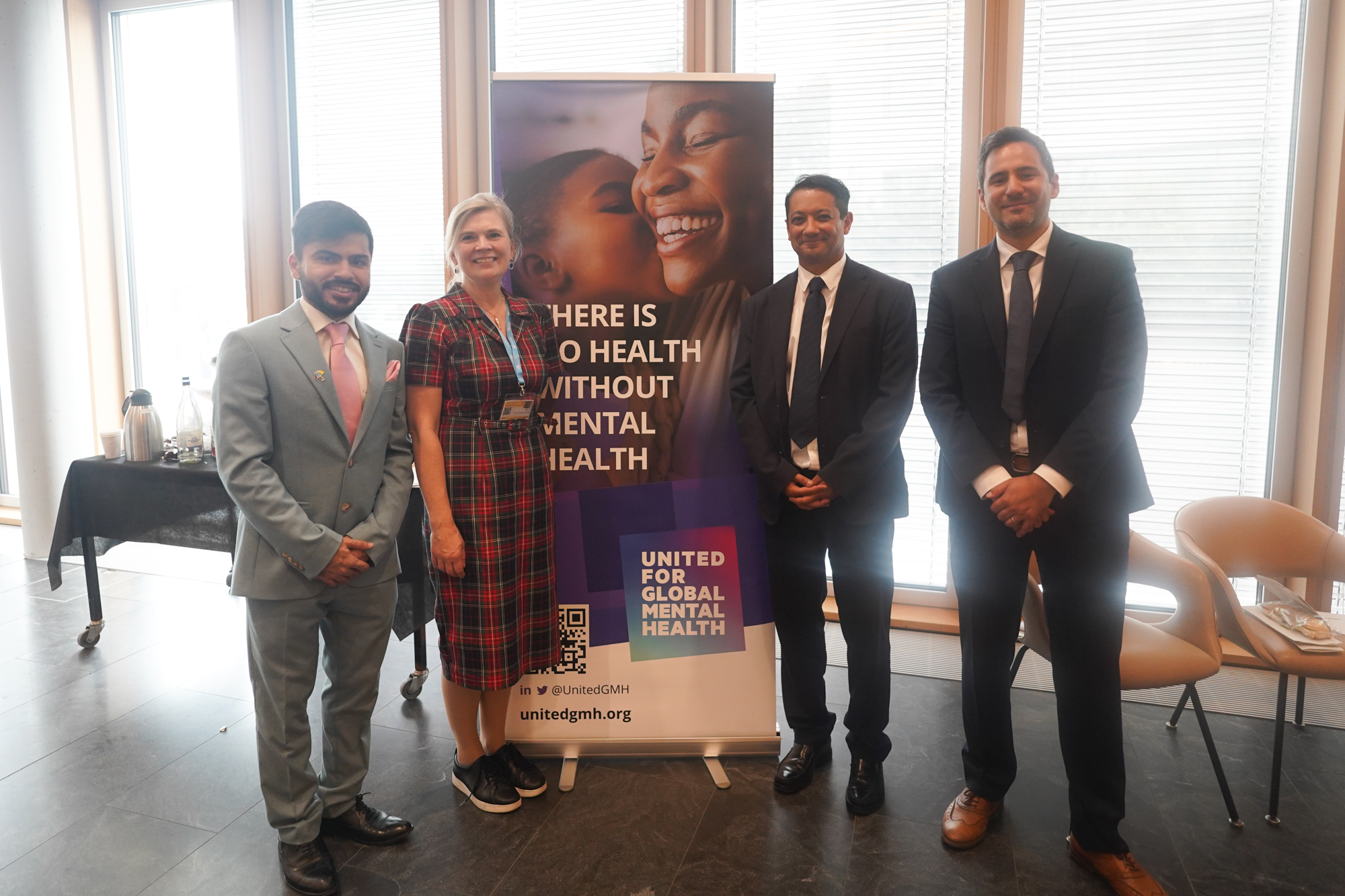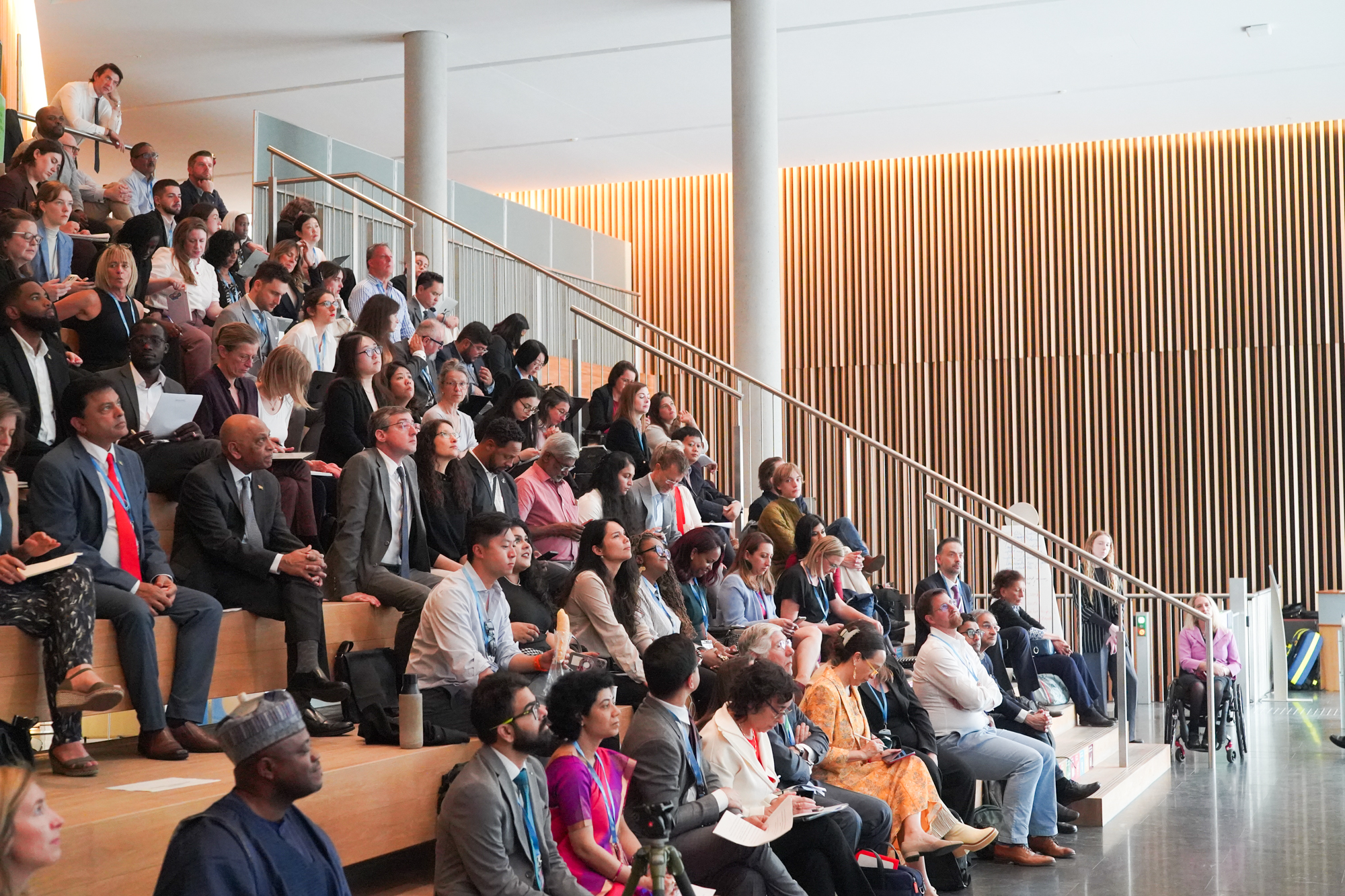From Institutions to Inclusion: A New Vision for Global Mental Health at the World Health Assembly
Hear from Ali Hasnain, our Policy & Advocacy Advisor, on his experience at the 78th World Health Assembly.
The World Health Assembly (WHA) in Geneva this May showcased an encouraging shift: mental health is finally at the heart of conversations about the right to health. Yet, amid these positive strides, one issue remains stubbornly under-discussed: the fate of people with mental health conditions living in institutions.
Globally, more people reside in psychiatric institutions than in prisons – often for years, enduring abuses that range from neglect to physical restraint. Shackling and chaining remain tragically common, and communities frequently resist welcoming back those who have lived behind institutional walls. If mental health is to truly be recognised as a core human right, we must shine a spotlight on this hidden injustice.
Bringing Institutional Abuse into the Spotlight
In partnership with United for Global Mental Health, the Office of the High Commissioner for Human Rights organised a high-profile side event at the WHA to break the silence. Governments from Mexico, Portugal, and Brazil—longtime champions of mental health on the world stage—joined forces to co-sponsor this critical discussion.
- Mexico spearheaded a UN General Assembly resolution on mental health and psychosocial support in September 2023.
- Portugal and Brazil have co-led resolutions on mental health within the UN Human Rights Council for several years.
Their political leadership ensured that institutionalisation—often hidden from public view—became a topic of discussion in the global arena.
Voices of Government, UN Leaders, and Lived Experience
The event featured powerful remarks from:
- Dr. David Kershenobich Stalnikowitz, Mexico’s Health Minister
- Ambassador Mira Gomes, Portugal’s envoy to Madrid
- Dr. Dévora Kestel, Director of Mental Health and Substance Use at the World Health Organization
All three stressed the urgent need to replace long-stay institutional care with a recovery-oriented, human-rights-based model delivered in communities. Their consensus was clear: mental health services must be accessible, dignified, and rooted in patients’ everyday lives.
Passionate contributions from the floor underscored the political will behind this call for change:
- Renet Van Der Vaals, Netherlands Ministry of Foreign Affairs
- Aradhana Patnaik, India’s Ministry of Health & Family Welfare
- Dr. Leslie Ramsammy, MP, Permanent Mission of Guyana
But the most moving moments came when people with lived experience of institutionalisation spoke. Benjamin Ballah shared his personal journey—from involuntary confinement and shackling in Liberia’s institutions to founding Cultivation for Users’ Hope, an organisation that helped shape Liberia’s new mental health law. Hearing directly from those who have survived institutional abuse brought home why this issue demands our urgent action. That they sat side by side with members of governments and heads of UN organisations as equals spoke for itself.
Imagining a Rights-Based Future
Moderator Veronica Cho of the Global Mental Health Action Network (GMHAN)—a 6,500-member coalition spanning 170 countries— closed the event by recalling her own years in an institution. She urged everyone in the room to imagine:
A world where nobody is confined to a psychiatric institution against their will;
Where care is delivered with dignity and respect for human rights;
Where people live, work, and thrive within their families and communities.
This vision is no longer abstract. With the first ever UN high-level meeting on noncommunicable diseases and mental health just months away, world leaders will have the chance to endorse a Political Declaration that enshrines community-based care as the global standard.
How You Can Help
GMHAN has already welcomed the zero draft of the Political Declaration, praising its call to shift mental health care away from institutions and into community and primary-care settings. At United for Global Mental Health, we will publish a comprehensive report on ending institutionalisation next month, and we have also published our position on the zero draft.
Here’s how you can lend your voice:
- Share the GMHAN and United for Global Mental Health position papers with your national governments.
- Advocate for strong commitments to end institutionalisation at the UN General Assembly this September.
- Join GMHAN to connect with advocates, survivors, and policymakers working nationally for lasting reform.
The road ahead will be long—and turning commitments into concrete action at the national level will take sustained effort. But the foundations laid in Geneva this May prove that real change is possible when governments, UN agencies, and people with lived experience stand together.
Let us seize this moment. Together, we can end institutionalisation, uphold the dignity of all people with mental health conditions, and build a mental health system that reflects our shared commitment to human rights.

(Photo: Ali, Sarah,Daniel Fyfe and Khaled Hassine. )

(Photo: speakers and attendees at the deinstitutionalisation event.)
Learn more about some of the events we co-hosted with partners and global advocates from the Global Mental Health Action Network (each link opens up a short video):
- Suicide prevention involving Bangladesh, Cambodia, Guyana, India, and WHO
- Community-based mental health care involving Mexico, Portugal, India, OHCHR and WHO
- Child and Youth mental health involving the Being partnership, South Africa, UNICEF and WHO
- Social and Commercial Determinants of Mental Health involving WHO, World Federation of Public Health Associations, Movendi and the World Obesity Federation